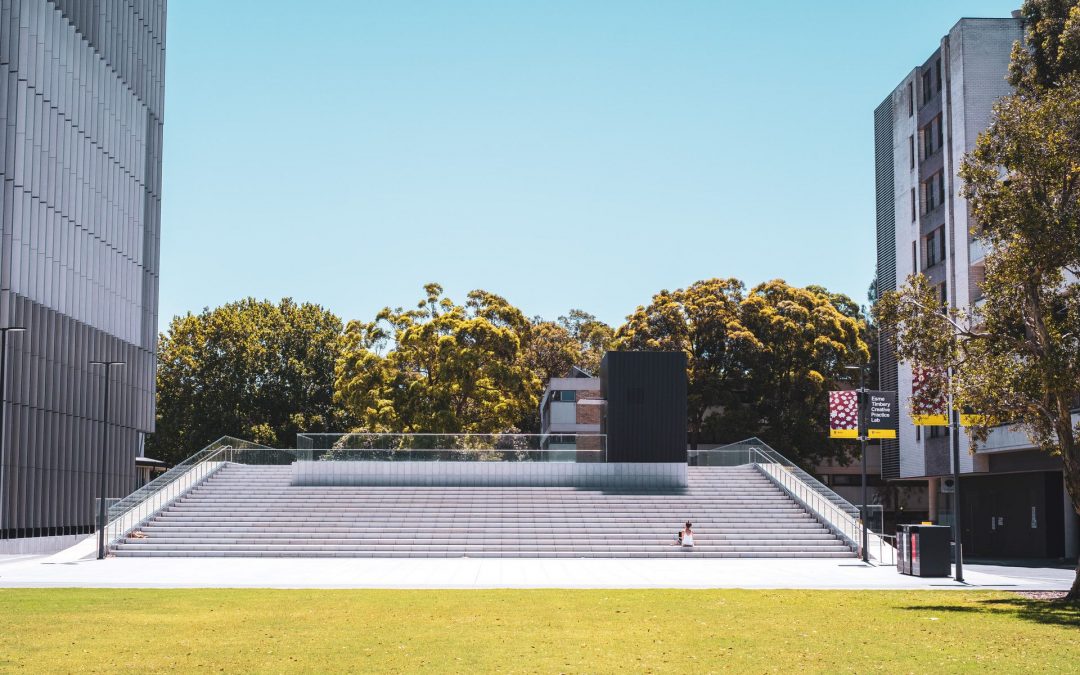UNSW Sydney offers blockchain and crypto courses to undergraduates and postgraduates alike ranging across finance and computer science. Examples in the past have included “Cryptocurrency and Decentralised Finance” and “Software Architecture for Blockchain Applications.”
table {
border-collapse: collapse;
width: 100%;
}
tr{
border: 1pt solid black;
}
td{
padding:5px;
font-size: 24px;
text-align: center;
}
tr td:nth-child(1){
background-color: #262626;
color: #fff;
}
tr td:nth-child(3){
font-size: 18px;
width: 20%;
}
tr td:nth-child(4){
font-size: 18px;
width: 20%;
}
tr td:nth-child(5){
font-size: 18px;
width: 20%;
}
.circle{
background-color:#F8BF1E;
display:block;
height:50px;
width:50px;
border-radius:50%;
border:1px solid #000;
margin:auto;
color: #fff;
line-height:50px;
text-align:center;
font-size: 18px;
}
.green{
font-size: 18px;
color: #00D964;
}
.red{
font-size: 18px;
color: #FF0000;
}
.white{
font-size: 18px;
}
| 13 New | UNSW Sydney | Total Score 66.3 | Regional Rank 7 | Courses 5 |
Information systems professor Dr Eric Lim is launching a course in 2022 that will “combine the crypto philosophy of decentralization with how we design cybersecurity policies and programs,” he said. Lim is the crypto lead at the university’s digital transformation research lab UNOVA. He also directs a clinic program providing “free consultation for individuals who would like to enter the space but hesitate to do so due to the lack of knowledge.”
Read More: The Top Universities for Blockchain by CoinDesk 2021
Enthusiastic students at UNSW can sign up to join the UNSW Cryptocurrency and Blockchain Society or the broader UNSW Fintech Society. The former has recently relaunched and attracted intense attention, with over one hundred applications for its subcommittee. It has also recently been organizing online crypto education sessions with the trading platform Luno.
In 2019, a team from UNSW Sydney faced competition from Stanford, Columbia and other world-renowned institutions to win the top prize at the MBA Blockchain Venture Competition organized by blockchain engineering firm ConsenSys. The UNSW team included students from software engineering, the business school and the school of psychiatry who together built a blockchain-based service to help GPs find suitable community care for their patients.
Blockchain interest at UNSW Sydney goes beyond its typical homes in the computer science and business schools: law professor Ross Philip Buckley has contributed to academic publications on the legal context of distributed ledgers and is currently looking for doctoral candidates interested in central bank digital currencies.
Academics from across the university have formed a coalition named the UNSW Interest Group in Blockchain, Smart Contracts and Cryptocurrency. Its activities include holding open seminars and workshops to foster engagement with the blockchain industry as well as government and regulators. The group’s affiliated staff regularly publish their blockchain research in journals and present it to international conferences.
Postgraduate research students can engage with the group too. Those presently involved are working on dissertations with titles like “Blockchains for Autonomous Vehicles” and “Development of (Blockchain Based) Trading Mechanism for Energy Market Including Microgrids.”














